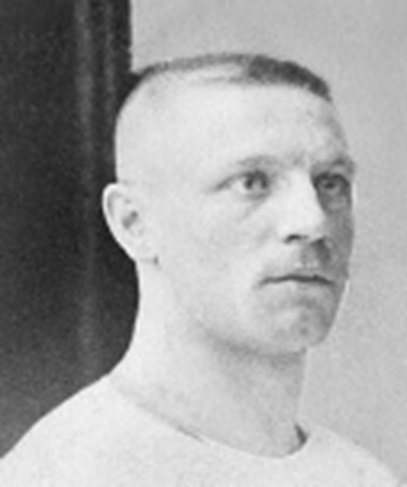Switzerland & Midwest connections: Meet Me in St. Louis
Welcome to the newly created History Blog featuring the connections between Switzerland and the Midwest. I am Joerg Oberschmied, Deputy Consul General in Chicago. My interest in history started at an early age and continues to this day. The views expressed are solely mine and I hope you enjoy these journeys through time.
Meet Me in St. Louis
The International Olympics Committee (IOC) selected Chicago, the only serious bid, at its Paris session in 1901 to host the 1904 Olympic Games. The games never took place in the windy city, however, as St. Louis snatched them away. Scheduled to host the world’s fair in 1903 in celebration of the 100th anniversary of the Louisiana Purchase, St. Louis was well behind schedule and the fair was moved to 1904. Since the organizers wanted the Olympic Games to be part of the exposition, they threatened to hold competing Olympics and Chicago referred the decision to IOC President Baron de Coubertin, who gave in to the threat but did not attend the games. As a result, with the World’s Fair stretching on, the games officially ran from July 1 to November 23 (176 days) and compared to their modern counterparts, were scarcely an international affair. Notwithstanding that many took part in the exposition, European nations balked at the cost and long travel times for athletes to St. Louis. When the games finally got under way, only 12 countries bothered to show up. The games were notable as being the first at which gold, silver and bronze medals were awarded and the St. Louis world fair also marked the debut of the ice cream cone, iced tea, Dr Pepper, and hot dogs with mustard.
Americans accounted for 523 of the 630 athletes, and more than half of the events were contested entirely by local athletes. Thanks to the significant numerical advantage, the United States would go on to win a total of 239 out of 280 medals (78 of which were gold) — the largest haul by any country in a single Olympics. However, the near-sweep came with some controversy. The United States was criticized for fielding several European immigrants who still weren’t citizens. Norway is still contesting two American wrestling gold medals they claim as their own. Switzerland was represented at the games as well by two gymnasts, while several athletes with Swiss roots competed for the United States.
For Gymnastics, the official rules noted that the events would be conducted under the rules of the North American Gymnastic Union (Turnerbund). Turnverein gymnastics were made popular by German immigrants in the 19th century and spread to the United States, especially in Chicago which had the most clubs in the US and two of the ‘Turner Halls’ are still standing. The first Turnfest in Switzerland was held in 1832 in Aarau and Swiss emigrants established their own clubs in America. The Schweizer-National Turnverein in St. Louis for example was founded in 1887 and had one of the largest halls. It was later joined by the Turnverein Helvetia, but both clubs faded in the 20s and 30s. The Turnvereine were responsible for introducing physical education into Chicago public schools and Turnverein gymnastics events were held at the Olympic Games in St. Louis. They consisted essentially of six events: horizontal bar, parallel bars, side and long horses, 100 yard run, shot put and long jump. On the horizontal bar, parallel bars and horse, each contestant executed three different exercises, two compulsory and one optional.
Twenty-four year old Basel native Adolf Spinnler, who competed for the Turnverein Esslingen, won a Gold for in the combined three events and a Bronze medal in the individual all-around competition, winning the only medals for Switzerland at these games. Andreas Kempf competed for Switzerland in three gymnastics events, finishing 8th in the combined three events finals. He arrived in the United States in 1902 and represented the Kansas City Turnverein. Kempf applied for naturalization as a US citizen in 1908, but was denied citizenship.
Athletes with Swiss roots included Emil Schwegler who competed for the United States in three gymnastics events, representing the St. Louis Schweizer Turnverein. Born in Switzerland, he was naturalized as a US citizen with his parents and attended the Central College of Osteopathy in Kansas City, Missouri, and later worked as an osteopathic physician. Oscar Schwab was born in Paris to a Swiss mother and was adopted by her American husband. He competed for the US in the quarter mile cycling race. After the games he raced mostly in Europe and was Swiss sprint champion in 1907. Eighteen-year old Gustav “Gus” Tiefenthaler was also born in Switzerland and moved to the United States with his family when he was a child. He represented the South Broadway Athletic Club of St. Louis. At the Olympics, Tiefenthaler managed to wrestle a single bout in the men’s freestyle light flyweight event and lose, but still walk away with a bronze medal.
Switzerland hosted the Olympic Winter games in 1928 and in 1948 (both times in St. Moritz) and won 345 medals at summer and winter games. The number of medals won by the United States (with or without Swiss support) we leave to our American friends to count. Visit the Olympic Museum in Lausanne at www.olympic.org for more information. Special thanks to Beth Zurbuchen at the Swiss Center in New Glarus (www.theswisscenter.org) which houses a collection of historic Swiss American artifacts and books.




Interested in reading more? Read about Gaston Chevrolet and the Indy 500 here!
